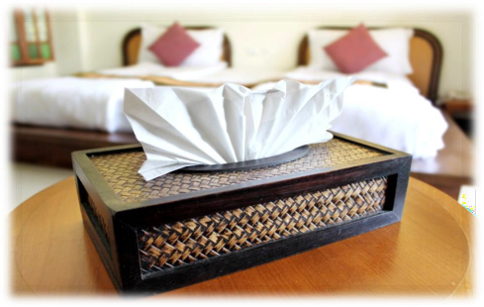ENVIRONMENTAL TISSUE

Today's world has a genuine desire to have less impact on the environment. What was previously accepted as "green" tissue paper was not as beneficial as once thought. Starting in the 1980s, the early focus of eco-tissue was primarily on paper products manufactured with recycled content without considering the other environmental concerns.
The challenge with recycled tissue is the economic and ecological cost of refining used paper into an acceptable quality for tissue paper. Unfortunately, creating quality recycled tissue requires vast amounts of energy, water, and harsh chemicals like bleaches, which all harm the environment.
When the total influence from using recycled pulp is considered, it does more harm than good. The Mill Group sources its pulp from live eucalyptus trees that are trimmed and rapidly continue to grow. We select pulp with the smallest possible ecological footprint that transforms CO2 into fresh air for everyone to breathe.
Earth Mill production optimizes every aspect of tissue manufacturing for the environment and the bottom line. Earth Mill's revolutionary process includes:
1) All plant energy is produced from solar energy produced by the Mill Group, eliminating the CO2 impact of brown energy sources.
2) All plant water is recycled via four individual Mill Group systems, saving 100,000 gallons of water daily.
3) All hardwood pulp is from farmed and then replanted eucalyptus, not indigenous trees. This harvesting method results in zero-deforestation, promotes biodiversity, and reduces CO2.
4) These sustainable farms remove 270 million tons of CO2 from the atmosphere annually.
5) Eucalyptus is an eco- excellent pulp source that is fast-growing and rapidly regrows after being trimmed at its base. Eucalyptus trees also reduce erosion, and their oil produces biofuels.
6) Earth Mill takes advantage of Gambini SpA's patented Air Mill technology. It can use up to 30% less pulp in production, saving 110,000 trees monthly.
7) The Mill Group will have the first Air Mill in the Western Hemisphere. With AirMill, you can reduce pulp by 30% while providing additional water and energy savings.
8) Earth Mill uses less wood pulp yet still creates a stronger, more absorbent, and softer tissue.
9) Earth Mill requires recycling any remaining components from manufacturing.
10) Earth Mill's production process is completed in just one location rather than the industry standard of using multiple sites. Earth Mill eliminates the CO2 and expenses from the inefficient shipping of materials between numerous production sites.